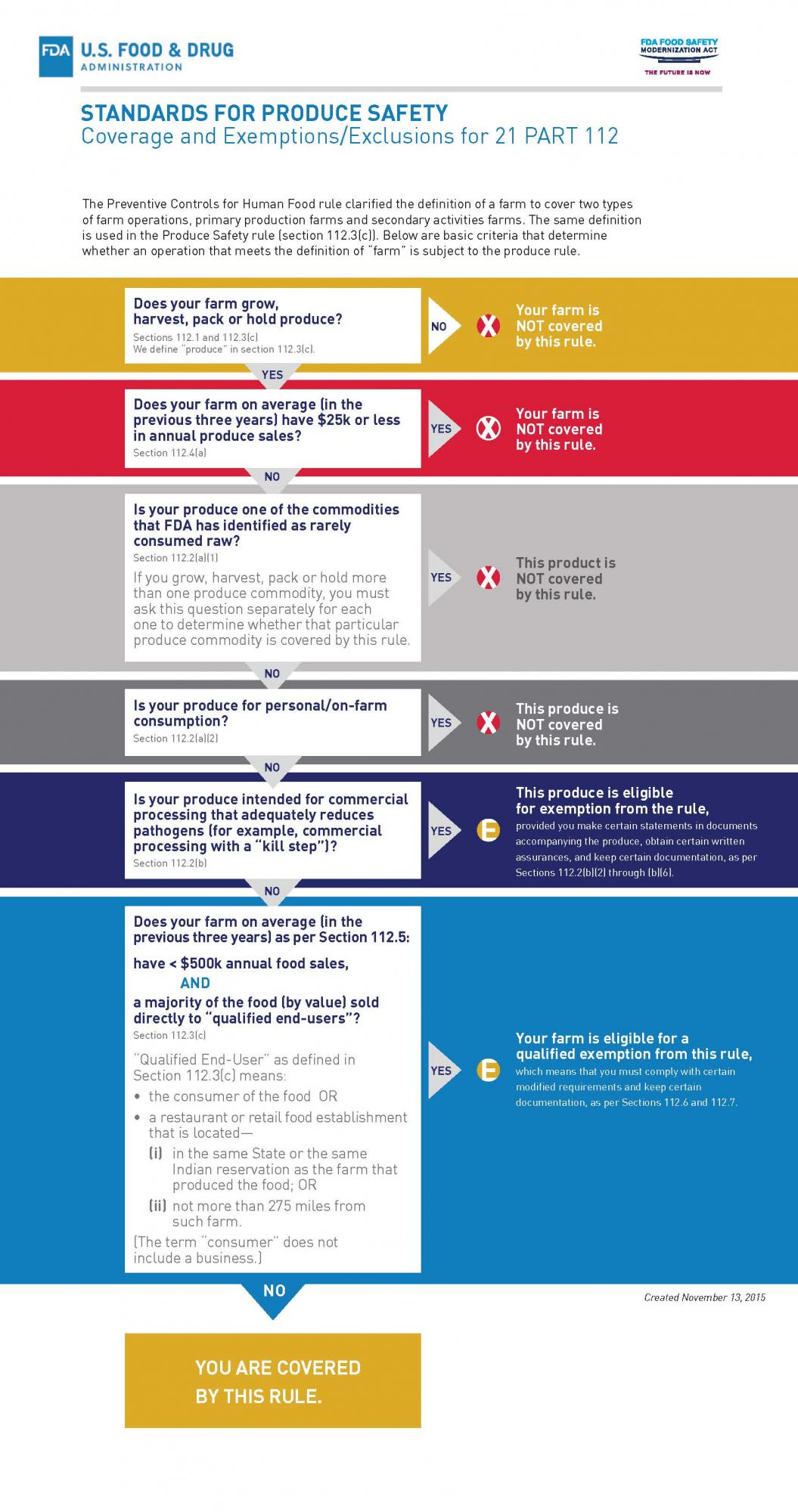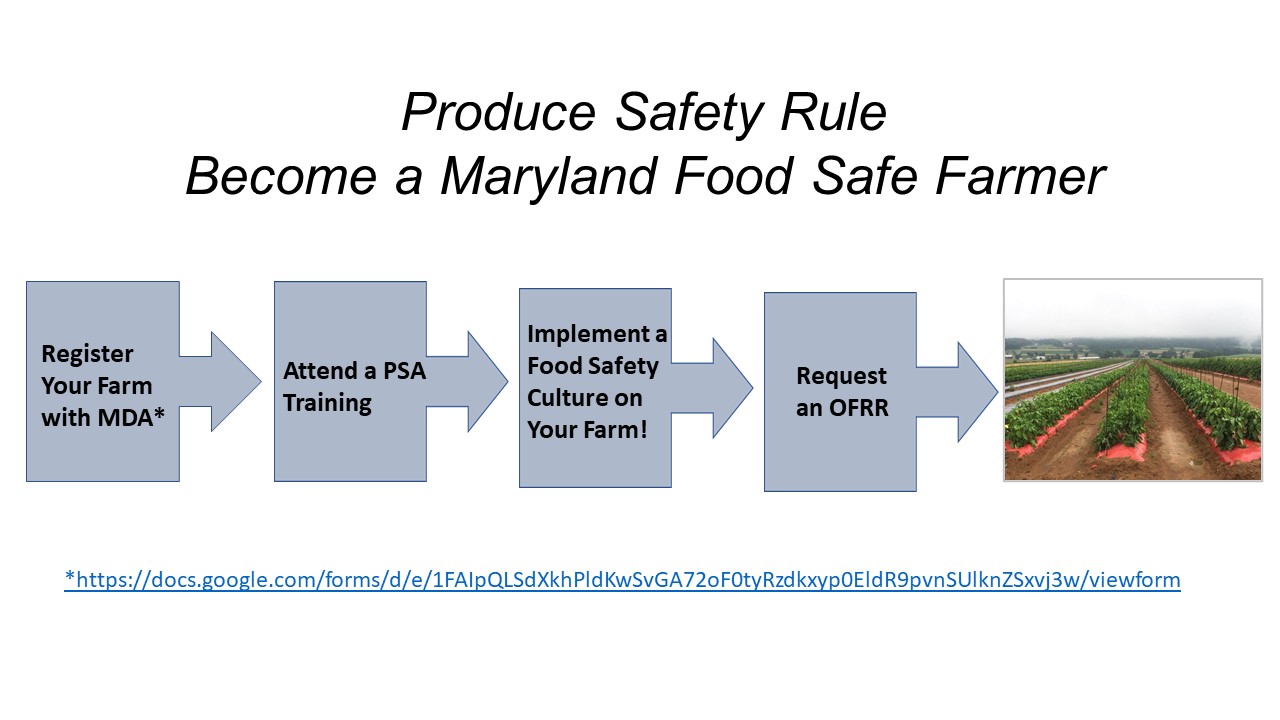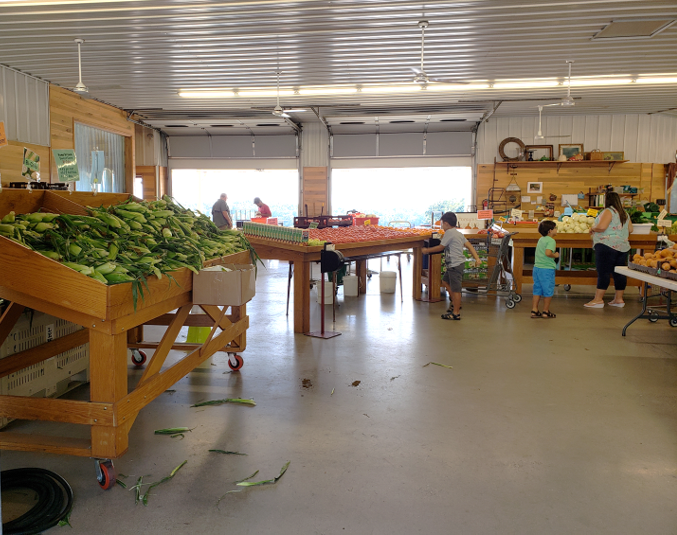I’m a PYO Fruit Grower….
I’m a Vegetable Farmer with a CSA………
I’m a Mostly Wholesale Grower with a Farm Stand….
I Raise Beef Cattle and Grow Vegetables for Our Family….
I Am Already GAP Certified, Does the Produce Safety Rule Affect Me?
The Produce Safety Rule (PSR) section of the U.S. Food Safety Modernization Act (FSMA) is aimed at reducing the risk of human exposure to microbial pathogens when fresh fruits and vegetables are consumed raw. Most all fruits and vegetables that are generally eaten raw are covered. *
The Produce Safety Rule is a mandatory federal regulation that is implemented based on the amount of produce sold and to whom. (CFR Code here: https://www.accessdata.fda.gov/scripts/cdrh/cfdocs/cfCFR/CFRSearch.cfm?CFRPart=112)
You are exempt if you sold less than an average of $28,561 (adjusted for inflation as of April 2021) in covered and non-covered produce over the previous three-year period.
You are required to comply to the rule if you sold over an average of $571,214 (adjusted for inflation as of April 2021) in produce sales per year in the last three year period.
It is the middle area – the qualified exempt status that gets complicated. A qualified exempt producer will meet the following criteria:
-
your average total food* sales were less than $571,214.
-
A lot will depend on what percentage of your food* sales were to “qualified end users”. So who is a qualified end user?
-
1. Your PYO and farm market customers
-
2. Restaurants and retail food stores in the same state and less than 275 miles away, and they sell directly to the consumer.
-
-
More than half (50.1%) of the value of the total food* sold went to the aforementioned qualified end users.
*For this calculation, grains, animal feeds, poultry, livestock, etc. are included
___________________________________________________________________________________________________

___________________________________________________________________________________________________
This chart will help you determine if you are covered by the Produce Safety Rule (note dollar values are not adjusted for inflation)
If you find that you fall into either the qualified exempt or required compliance categories, what do you do? The first step would be to attend a Produce Safety Alliance (PSA) training on the PSR. That training will outline the compliance requirements. Though lengthy, the PSR requirements are fairly common-sense standards and procedures that you are probably already implementing on your farm and are very similar to GAPs (Good Agricultural Practices) certification requirements.
You will need at least one person on your farm who has taken the training. It is very important that the PSA trained person be in a position to update procedures and train workers in the PSR standards.
Produce Safety Rule Is Maryland Department of Agriculture Supported
Start the process by registering with the Food Quality Assurance Program here:
PDF format:https://mda.maryland.gov/foodfeedquality/Documents/FSMA/PSR%20Registration%20Form%20Current.pdf
Fillable Google document: https://docs.google.com/forms/d/e/1FAIpQLSdXkhPldKwSvGA72oF0tyRzdkxyp0EldR9pvnSUlknZSxvj3w/viewform
This information helps MDA in determining resource allocation to maximize assistance to Maryland farmers.
___________________________________________________________________________________________________

___________________________________________________________________________________________________
In Maryland we are privileged to have the Maryland Department of Agriculture overseeing PSR compliance. Inspections of the larger producers have already started, and many farms are electing to have an On Farm Readiness Review (OFRR) before an inspection. The OFRR brings three specialists to your farm: someone from MDA, someone from your local extension office, and a food safety educator from the University of Maryland. This team will go over the compliance requirements with you and look specifically at your farm’s unique situation. Even the FDA is looking at these first years as a time of education not retribution. We in the Food Safety Group have attended many OFRR’s, and the farmer feedback is that they are very helpful and give real, reasonable application to what can be a confusing set of laws. The goal is to develop a food safety culture on your farm and with your workers to help keep your customers safe.

*The following are produce commodities that FDA has identified as rarely consumed raw: asparagus; black beans, great Northern beans, kidney beans, lima beans, navy beans, and pinto beans; garden beets (roots and tops) and sugar beets; cashews; sour cherries; chickpeas; cocoa beans; coffee beans; collards; sweet corn; cranberries; dates; dill (seeds and weed); eggplants; figs; ginger; horseradish; hazelnuts; lentils; okra; peanuts; pecans; peppermint; potatoes; pumpkins; winter squash; sweet potatoes; and water chestnuts